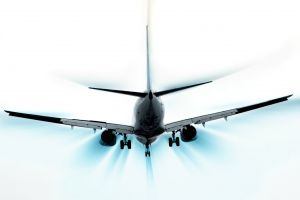Travel News
Patrick Smith on the Security Industrial Complex Post 9/11
As a country, we have spent more on travel security in the 10 years after 9/11 than ever before. Are we safer or have we just built an industry around our fear? Patrick Smith, airline pilot and founder of AskThePilot.com, identifies the progress and missteps of the last 10 years.
Peter Greenberg: Let’s look at the 10-year anniversary of 9/11 not from the consumer point of view, but from an airline pilot’s point of view. Patrick, what lessons have we learned? Most important, what lessons have we applied? And, equally as important, what lessons do we still need to apply?
Patrick Smith: That’s a huge and an excellent question, Peter. Let’s be honest, the attacks, whether directly or indirectly, inspired a certain pathology of bad decisions and very expensive decisions.
Any conversation as to how the world of air travel has been altered by 9/11 has to begin and end with the Transportation Security Administration (TSA). The huge irony is that the success of the attacks really had nothing to do with airport security. The attackers weren’t taking advantage of a loophole in security; they were taking advantage of a loophole in our mindset and in our expectations of what a hijacking can do. The fact that the hijackers had box cutters was really irrelevant. They could have used anything. We could talk all day about the TSA’s failures since 9/11.
PG: What is the main legacy of 9/11?
PS: That’s an interesting question. The airline industry looks drastically different today than it did pre-9/11, but it already was poised for some serious changes. The major carriers were already groaning under serious physical stress. The low-cost airline sector fronted by Southwest and JetBlue was growing rapidly as was the regional airline sector. I think the attacks were a powerful catalyst that threw the industry into a down-cycle, unlike anything that happened before. Four major carriers went bankrupt. A bunch of other carriers were forced to liquidate along the way. It can be argued that these changes were coming anyway and that 9/11 simply made them come faster. Either way, I think the airline industry was destined to look about the way it looks today.
PG: We now live in a world where there are armed pilots. How else have operations changed?
PS: I think operational changes like armed pilots should have been in place before 9/11, not after. The beauty of the attacks was so long as the guys didn’t chicken out, they were guaranteed to succeed. Today, just the opposite is true for a whole host of reasons. Is one of those reasons the fact that pilots are armed? I don’t know; maybe to a small degree. It’s hard to measure the deterrence factor.
PG: 9/11 has changed the way we fly and how we fly. It changed the process of getting from point A to B, and those changes are here to stay.
PS: Most of the process changes are with airport security. If you take that out of the picture, I don’t think 9/11 is responsible for that many changes to today’s air travel experience.
PG: We still get to the airport early; we still go through the screening; we still complaining about the methodology of the screening or the equipment that’s being used. At the end of the day, the screening is here to stay. The TSA’s main challenge is to try to stay one step a head of the creativeness, if you will, of people who would want to take down some planes.
PS: To a large degree that’s a lost cause. We’re never going to be fully protected, and you’re never going to be able to outwit a truly resourceful perpetrator. I’m not saying we should throw in the towel, but we need to be realistic. And we have to look at the hierarchy of threat. The TSA needs to put most of their resources and time to the highest levels of threats―and go from there and hope for the best.
At some point, there is going to be another attack against commercial aviation. We’ve been living with attacks against commercial aviation for sixty years. Our memories are short. We tend to think that air crime began on September 11, and that’s not true at all. The 70’s and the 80’s were rife with terrorist attacks, airport bombings and airplane bombings. Since 9/11, we’ve seen far fewer of such attacks.
PG: Patrick, what is the one lesson we should take away from ten years after 9/11?
PS: Vulnerability still exists. There are our ports. There are our airports. There are our shopping malls, sports venues, it goes on and. The danger is the creation of the security industrial complex. Putting billions and billions of dollars into security doesn’t necessarily make us safer. However, it does make certain people richer. As a country, we need to pause and make sure our spending and actions are rational. 9/11 was supposed to have made us a better country. Let’s make sure that we do not become a country that is so preoccupied with fear it creates a security complex that robs us of our resources and our dignity.
By Peter Greenberg for Peter Greenberg Worldwide Radio
Related links:
- Former Secret Service Agent Christopher Falkenberg on the Real Threats 10 Years After 9/11
- Ask the Pilot: Legitimate Safety Concerns Versus Safety Scares in Air Travel
- The TSA’s Security Theater and What to Do About It
- Full Show–September 10, 2011–Fire Island, New York













